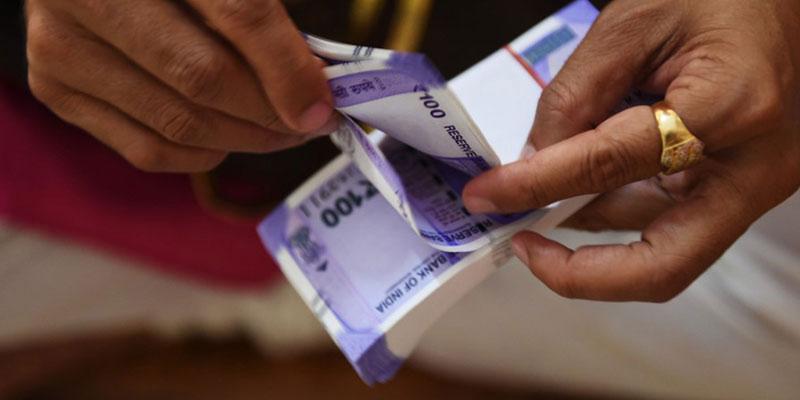- India
- Jun 03
Centre grants FCRA clearance to Maharashtra Chief Minister’s Relief Fund
• The Maharashtra Chief Minister’s Relief Fund has been accorded a licence under the Foreign Contribution (Regulation) Act, 2010, thus making it eligible to receive foreign funding.
• As per the law, all associations and NGOs receiving foreign contributions have to be registered under the FCRA.
• An FCRA licence is a permit issued by the Ministry of Home Affairs that allows registered organisations to accept foreign funds for specific purposes.
• These licences are crucial for the NGOs, trusts and other entities seeking to receive foreign funding for social, cultural, religious or educational activities.
• The Maharashtra Chief Minister’s relief fund aims to provide financial assistance to people affected by major natural calamities like flood, drought and fire accidents, etc.
• Meanwhile, Kerala has accused the central government of political bias after it allowed Maharashtra to accept foreign aid while denying similar help to Kerala during its 2018 floods.
• State Finance Minister K.N. Balagopal said Kerala has no objection to Maharashtra receiving foreign assistance for relief efforts. However, he criticised the Union government for what he called “discriminatory treatment” between states.
• He said the Union government’s stance “is a violation” of the country's federal principles and the principle of equal treatment that should be guaranteed by the Centre to all states.
Foreign Contribution (Regulation) Act
• The Foreign Contribution (Regulation) Act, 2010, came into effect in 2011.
• It has been enacted by Parliament to consolidate the law to regulate the acceptance and utilisation of foreign contribution or foreign hospitality by certain individuals or associations or companies and to prohibit acceptance and utilisation of foreign contribution or foreign hospitality for any activities detrimental to national interest and for matters connected therewith or incidental thereto.
• While the provisions of the repealed FCRA, 1976, have generally been retained, the FCRA, 2010, is an improvement over the repealed Act as more stringent provisions have been made in order to prevent misutilisation of the foreign contribution received by the associations.
• Registration under the FCRA, 2010, is mandatory for NGOs and associations to receive foreign funds.
Key provisions of the FCRA:
1) A person who is registered under this Act cannot transfer foreign contribution to any other person. The term ‘person’ under the Act includes an individual, an association, or a registered company.
2) The following are prohibited to receive foreign contribution:
• Candidate for election, MPs, MLAs.
• Correspondent, columnist, cartoonist, editor, owner, printer or publisher of a registered newspaper.
• Public servant, judge or employee of any corporation or any other body controlled or owned by the government. Public servant means any person who is in service or pay of the government, or remunerated by the government for the performance of any public duty.
• Political party or office bearer thereof.
3) Providing the Aadhaar number of the office-bearers of an NGO is mandatory for the registration of the organisation under the FCRA. In case of a foreigner, a copy of the passport or Overseas Citizen of India Card is a must.
4) Every person who has been granted certificate or prior permission shall receive foreign contribution only in an account designated as ‘FCRA Account’ by the bank, which shall be opened by the person in the State Bank of India in New Delhi. No funds other than foreign contribution shall be received or deposited in any such account.
However, the person can open another ‘FCRA Account’ in any of the scheduled banks for the purpose of keeping or utilising the foreign contribution which has been received from SBI branch in New Delhi.
5) Maximum limit for utilising foreign contribution for administrative (office) expenses have been brought down to 20 per cent. Earlier, it was 50 per cent.
6) On the basis of any information or report and after holding a summary inquiry, if a person is found to have contravened any of the provisions of this Act, the central government can direct that such person shall not utilise the remaining foreign contribution without prior approval.
7) The central government may permit any person to surrender the registration certificate, if it is confirmed that such person has not contravene any of the provisions of the Act, and the management of foreign contribution and asset has been vested in the authority.
8) Earlier, the government could suspend the registration for only 180 days during which no foreign funding could be received. Following the amendment, it has been extended to up to 180 additional days.
9) Before renewing the certificate, the government may make an inquiry to satisfy itself that the person has fulfilled following conditions:
• The person is not fictitious or benami.
• Has not been prosecuted or convicted for indulging in activities aimed at conversion through inducement or force, either directly or indirectly, from one religious faith to another.
• Has not been prosecuted or convicted for creating communal tension or disharmony in any specified district or any other part of the country.
• Has not been found guilty of diversion or mis-utilisation of its funds.
• The person is not engaged or likely to engage in propagation of sedition or advocate violent methods to achieve its ends.
• The person is not likely to use the foreign contribution for personal gains or divert it for undesirable purposes.
• Has not contravene any of the provisions of the Act.
• Has not been prohibited from accepting foreign contribution.
Manorama Yearbook app is now available on Google Play Store and iOS App Store

